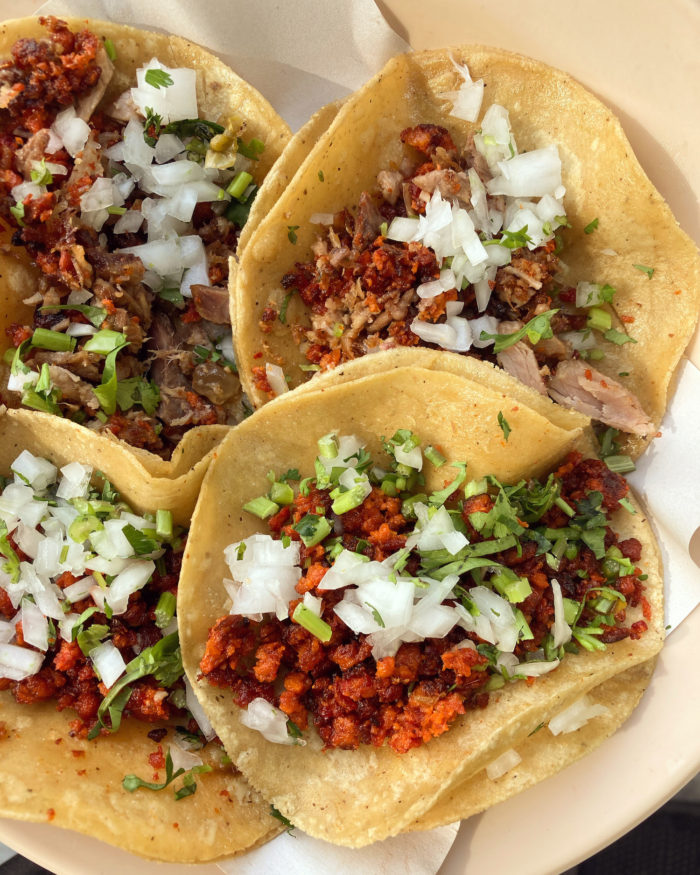
One of the most heartbreaking misconceptions I hear about intuitive eating is that it involves abandoning your health in favor of “food freedom” and body acceptance.
That health, freedom, ease, beauty, and pleasure cannot coexist.
My experience is the opposite – intuitive eating is the ONLY thing that restored my mental and physical health – from energy and enthusiasm to skin and digestion…
… and I tried ALL the diets – macrobiotics, low calorie, paleo, bulletproof, keto, to name a few.
Here’s the truth: If you’re eating whatever you want and feeling like sh*t, even low-grade sh*t, that’s not true freedom.
That’s not serving you… and that’s not the style of intuitive eating I practice or teach.
My approach, ACTIVATE intuitive eating, is at the intersection of holistic nutrition and intuitive eating, which for me, are really the same.
Many people don’t see it that way, so I’m distinguishing for clarity.
We’re taught we need to control our bodies and micromanage our food in order to be healthy, so of course, it’s easy to feel out of control and “unhealthy” when you start intuitive eating.
The truth is that your body knows what you need, including alllll the specific nutrients, but it takes time to get back to that knowing, and to trust yourself.
When you start intuitive eating, it’s easy to wonder, am I actually in optimal health?
Am I eating enough nutrients?
Do I actually feel good?
What does “good” even mean? Free from diets? Good in my physical body? Symptom-free?
Does it matter if my clothes fit, or whether I like what I see in the mirror?
There’s so many new emotional and physical reactions at play, that it’s common to wonder if you’re actually in optimal health as a new intuitive eater.
Below are five tangible markers you can use to gauge your health as an intuitive eater.
If you realize you’re not feeling great, I’m also including a few gentle ideas to help you move toward optimal.
Please check in with your doctor before making any changes. This is not intended as medical advice.
1. Energy.
Is your energy steady throughout the day?
If not, investigate your relationship with caffeine and alcohol.
Both can zap energy, as they activate the stress response and affect blood sugar. I highly recommend the book Caffeine Blues by Stephen Cherniske.
Of course, there are many potential causes of low energy, but this one is very common, and a great place to begin your exploration.
2. Digestion.
Are you having 1-2 solid bowel movements every day?
Digestion is complex, but adding in 2-3 servings of beans per day is tremendously helpful for most people, especially if you tend toward IBS-D.
If you get constipated, try slowly adding in more healthy fats, along with the beans, lots of high quality water, and magnesium.
3. Enthusiasm.
Do you feel excited and engaged most days?
If not, try adding in more pleasure and play: Dance, time in nature, funny movies… anything that absolutely delights you.
Mental health is a complex topic and I definitely recommend speaking with a professional if you have any doubts, but it’s incredible what tapping into your playful side can do.
I’ve noticed that caffeine and alcohol can make people feel very flat, too.
Everything I’m mentioning here is connected.
Caffeine is an anxiety trigger, while alcohol is a widely-known depressant.
Even in small amounts, both substances can have a major effect.
4. Sleep.
Are you getting enough quality sleep for your body? Do you fall asleep pretty quickly, stay asleep, and wake up feeling refreshed?
If not, try taking technology – phones, computers – out of your bedroom, and staying off of screens for an hour before bed.
Next, give yourself space to process your emotions and any anxiety. Journaling is incredibly helpful here.
In writing, you transfer emotions from your body to the page, so they’re no longer swimming inside you.
Free write for 10 minutes before bed, and then make a list of everything that’s on your mind, and everything you want to do the next day.
5. Skin.
The health of your skin is a reflection of your digestive health, and your overall health.
Everything mentioned here will help your skin, and it’s mostly an inside job, but I do have to say there’s one external shift that changed the game for me…
As a teenager, and into my 20s, I struggled with acne, and the only thing that finally helped me was switching almost exclusively to oil-based products.
Yep.
I now wash my face with pure olive oil, Everyday Oil, or a VERY gentle coconut milk cleanser (fat-based theme), then use a gentle rosewater toner, and last, Everyday Oil again as a leave-on, or if I’m feeling fancy, Vintner’s Daughter serum, which is entirely made up of oils and medicinal grade plants.
My natural oil barrier was all messed up by harsh “acne” products, and restoring it healed my skin and made me GLOW.
It’s always best to work with a professional to create an individualized plan for you. The tools here are simply meant to be potential clues or inspiration to support you on your journey. Check with your doctor before making changes. This isn’t medical advice, or individualized in any way.
When you’re an intuitive eater, it’s so important to come back to these fundamental health markers and remember that you can absolutely use food as medicine, without being restrictive.
How healthy are you feeling today, on a scale of 1-10, 10 being optimal?
As you practice honoring your body, letting go of the diet mentality, and processing your emotions, your intuitive choices will come into alignment with what’s best for your health.
I would LOVE to hear where you’re at with this today, please leave a comment below and I’ll reply directly.
Sending you so much love!
XO,
Lula
